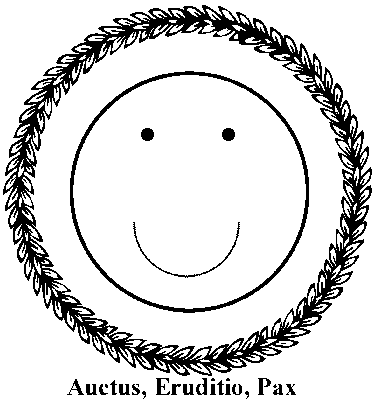TREATY OF AMITY AND COOPERATION
between
THE AERICAN EMPIRE AND THE FREE COMMUNITY OF PASARGADA
AFFIRMING the spirit of friendship and cooperation on which relations between the two nations are based, and wishing to place their relations on an even closer and more concrete basis;
ACKNOWLEDGING the importance to each nation of the wide-ranging relationship between them and the close and enduring connection between the well-being of their peoples;
WISHING to enhance the valuable contribution to their relations made by the existing agreements between the two nations in various fields;
RESOLVED to provide wider opportunities for their governments and their peoples to work together in a spirit of understanding on matters of mutual interest in the political, economic, trade, commercial, social, and cultural;
CONVINCED of the importance of strengthening and diversifying their relations on an equitable and mutually advantageous basis in a long-term perspective;
RECOGNIZING that cooperation between the two nations should have in view not only their own mutual benefit but also their common interest in the prosperity and welfare of other nations, including those in the micronational community;
CONVINCED that the conclusion of a Treaty which formally embodies and further advances the friendship and cooperation between the governments and peoples of the two nations will facilitate the further development of their relations;
HAVE RESOLVED to conclude a Treaty of Amity and Cooperation and for that purpose have appointed as their Plenipotentiaries :
THE AERICAN EMPIRE:
HE Tristan Glark
the Minister of Foreign Affairs
THE FREE COMMUNITY OF PASARGADA:
HE Bruno Cava
the Vice-Chancellor for Anglophone Affairs
Who, having communicated to each other their full powers, found to be in good and due form, have agreed as follows:
Article I [State of friendship]
1. The basic of relations between Aerican Empire and Pasargada shall be enduring peace and friendship between the two nations and their peoples.
2. The objective of the present Treaty shall be to extend and strengthen relations between the Contracting Parties, in particular by promoting understanding between the two nations and their peoples and by developing cooperation on matters of mutual interest.
3. The Contracting Parties, noting that the agreements existing between them are consistent with the objective expressed in paragraph 2 of this Article, may enter into further agreements between them, wherever necessary, on matters dealt with in the present Treaty or on other matters, including those not covered by the existing agreements.
Article II [Mutual cooperation]
1. The Contracting Parties, recognizing the importance of peaceful and friendly relations among nations in the international community, shall cooperate with each other in maintaining and strengthening those relations.
2. The Contracting Parties agree to pursue understanding in all international matters of mutual interest, avoinding use or threat to use force as a valid diplomatic maneuver between them.
3. The Contracting Parties shall endeavour to facilitate, strengthen and diversify mutual understanding and cooperation in such areas of mutual interest as the political, economic, human rights, legal, social, cultural, professional, sporting and environmental fields. To this end, the Contracting Parties shall encourage and promote in these fields, to the fullest extent practicable, appropriate study and research, exchange of information, knowledge, and other suitable activities.
4. The Contracting Parties shall also develop mutual understanding and cooperation in those international organizations of which both Contracting Parties are members and which are concerned with any of the fields referred to in paragraph 1 of this Article.
5. The Contracting Parties shall collaborate closely with each other in developing the mutual understanding and cooperation referred to in paragraphs 1 and 2 of this Article. To this end, they shall hold consultations, whenever necessary, on matters in the fields referred to in paragraphs 1 and 2 of this Article, making use, where appropriate, of the means provided for in existing agreements or arrangements.
Article III [Fair treatment]
1. Each Contracting Party shall accord to the nationals of the other Contracting Party fair and equitable treatment with respect to matters relating to their business and professional activities, provided that in no case shall such treatment be discriminatory between nationals of the other Contracting Party and nationals of any third nation.
2. The property of nationals of one Contracting Party of the other Contracting Party shall not be compulsorily taken unless for a public purpose and unless prompt, adequate and effective compensation is paid. Without prejudice to the foregoing, with respect to all matters dealt with in this paragraph, the nationals of one Contracting Party shall be accorded of the other Contracting Party treatment which shall in no case be discriminatory between those nationals and nationals of any third nation.
Article IV [Definition of territory]
1. The Contracting Parties agree, the purposes of bilateral relations, on considering sovereign territory of each other: websites, message boards, mailing lists and other virtual property under direct or indirect control of respective governments, as proclaimed by them as national jurisdiction and as long as respecting others micronations' sovereignty under international law and micronational costume.
Article V [Mutual protection]
1. The Contracting Parties compromise themselves, in foreign and internal affairs, to:
a) never facilitate or allow within its borders to be prepared, sponsored or in any way supported rebellions, coups d'etat and micronational conspiracies against the other Contracting Party;
b) condemn and abstain from recognizing illegal secessions or separatist movements from the other Contracting Party, unless sovereignty of these groups are unquestionable;
c) reprehend and abolish promptly practise of paper dolls, also known as paplism, in any circumstances, within national territory, informing the other Contracting Party about revealed paples and convicted paplists;
d) inform immediaty the other Contracting Party, whenever discovered, about substantial threats to its sovereignty, integrity or reputation within micronational scenario.
Article VI [Diplomatic representations]
1. The Empire of Aerica, members of the Aerican Imperial Family, the Minister of Foreign Affairs of said Empire and the Ambassador of Aerican Empire before Pasargada shall enjoy full sovereign immunity whilst within the jurisdiction of Pasargada.
2. The Chancellor of Free Community of Pasargada, the Vice-Chancellor for Anglophones Affairs of said Community and the Ambassador of Pasargada before Aerican Empire shall enjoy full sovereign immunity whilst within the jurisdiction of Aerican Empire.
3. Upon the ratifying this Treaty, there shall be:
a) Established in Aerican Empire an Embassy of the Free Community of Pasargada, which shall be occupied by an Ambassador appointed by the Chancellor of said Free Community and accredited by the Empire of Aerica:
b) Established in the Free Community of Pasargada an Embassy of Kingdom Aerican Empire , which shall be occupied by an Ambassador appointed by the Empire of Aerica and accredited by the Chancellor of the Free Community of Pasargada.
4. Embassies shall be constituted by a webpage or website linked to the national websites and shall be deemed for the purposes of this Treaty to be part of the territory of the represented Contracting Party and as such under its sole jurisdiction.
5. There shall be appointed an Ambassador to act as representative of a Contracting Party in the other. The Ambassadors shall have full citizenship of the Contracting Party of origin and shall have proper credentials approved by competent diplomatic or immigration authorities to be considered empowered.
6. Each Contracting Party are allowed to demand immediate removal of the Ambassador, at any time since arrival and without noticing reasons.
7. The Contracting Party declare their assent to the Viena Convention on Diplomatic Relations of 1961 and their affirmation to abide by all and sundry the applicable provisions of the same. Applicable provisions shall be considered all that are not obviously absurd within micronationalism.
Article VII [Extradition]
1. The Contracting Parties agree, the purposes of bilateral relations, on considering extradition as the expelling of an individual from all message boards, mailing lists and national channels of public communication and further symbolic delivery to the other Contracting Party, in the terms of this Article.
2. The Contracting Parties agree to extradite to each other, subject to the provisions of this Article, people found in the territory of one of the Contracting Parties who have been charged with, are being tried for, or have been found guilty of an extraditable offense in the Requesting State.
3. The crimes of treason, spionage, terrorism, paplism or any offense that may be punished by banishment under the laws of both Contracting Parties shall be considered extraditable offenses. An offense shall be an extraditable offense wheter or not the laws of the Contracting Parties place the offense within the same category of offenses or denominate the offense by the same terminology.
4. Extradition shall be granted for an extraditable offense regardless of where the act or acts constituting the offense were comitted.
5. Extradition shall not be granted when, accordingly to the classification of the Requesting State, the individual is persecuted for political offenses or when extradition is being asked solely for political reasons.
Article VIII [Final provisions]
1. This treaty replaces for all purpose former Agreement of Friendship and Mutual Cooperation between Aerican Empire and Free Community of Pasargada signed in June 1st, 2001.
2. The Contracting Parties shall periodically review, at the departmental level, the general operation of the present Treaty with a view to ensuring that the purposes of the present Treaty are being fully realized.
3. This treaty shall last indefinately and it shall only be revoked by previous advice to the other Contracting Party, altogether with an explanation of reasons.
IN WITNESS THEREOF the above named Plenipotentiaries have signed the present Treaty and have affixed thereto their seals.
GIVEN at the Embassy to Evereything Else, Aerican Empire,
[Tristan Glark, Minister of Foreign Affairs, 2002]
GIVEN at Port-Vila, Efate Canton, Free Community of Pasargada,
[BRUNO CAVA, Vice-Chancellor for Anglophone Affairs, 2002.]
Back to the Aerica main page! Back to the Diplomatic Relations!
[BRUNO CAVA, Vice-Chancellor for Anglophone Affairs, 2002.]


Back to the Aerica main page! Back to the Diplomatic Relations!
